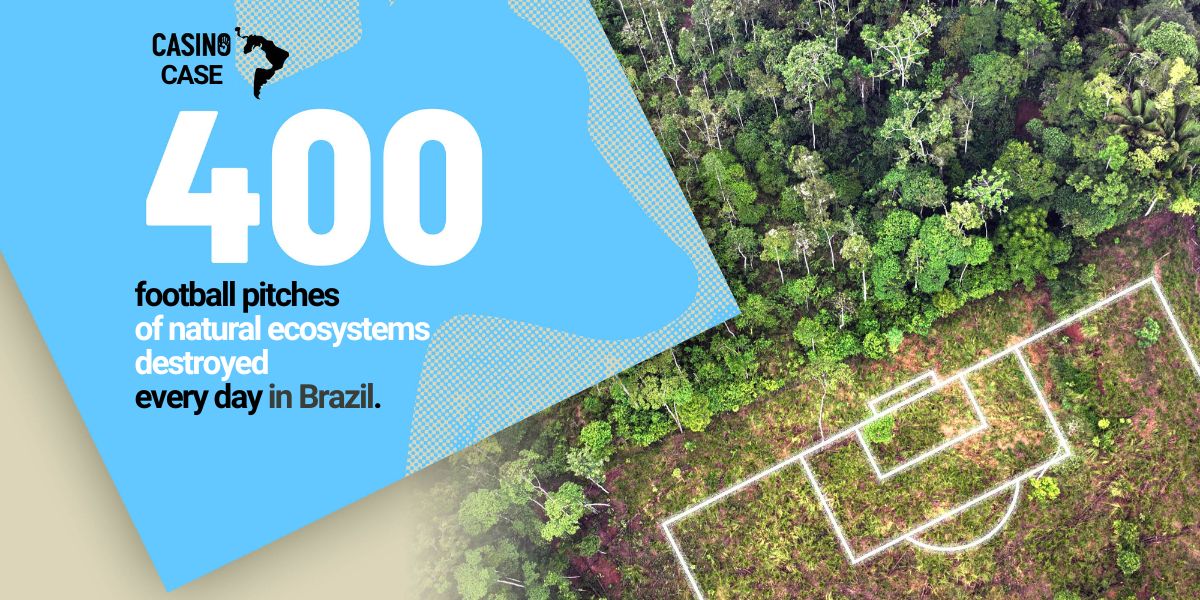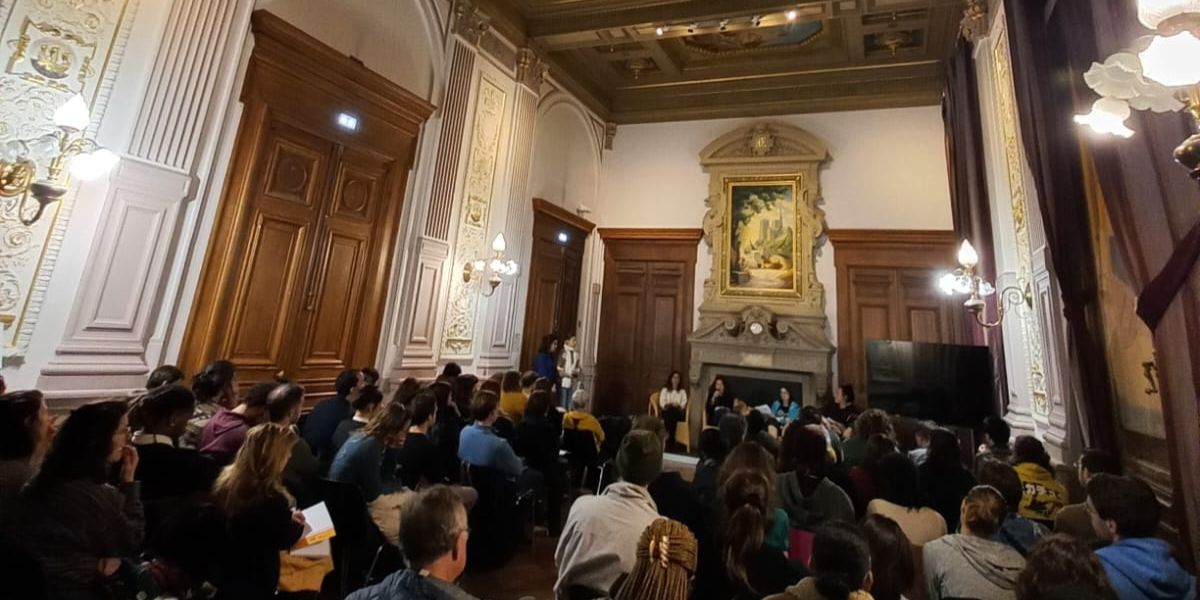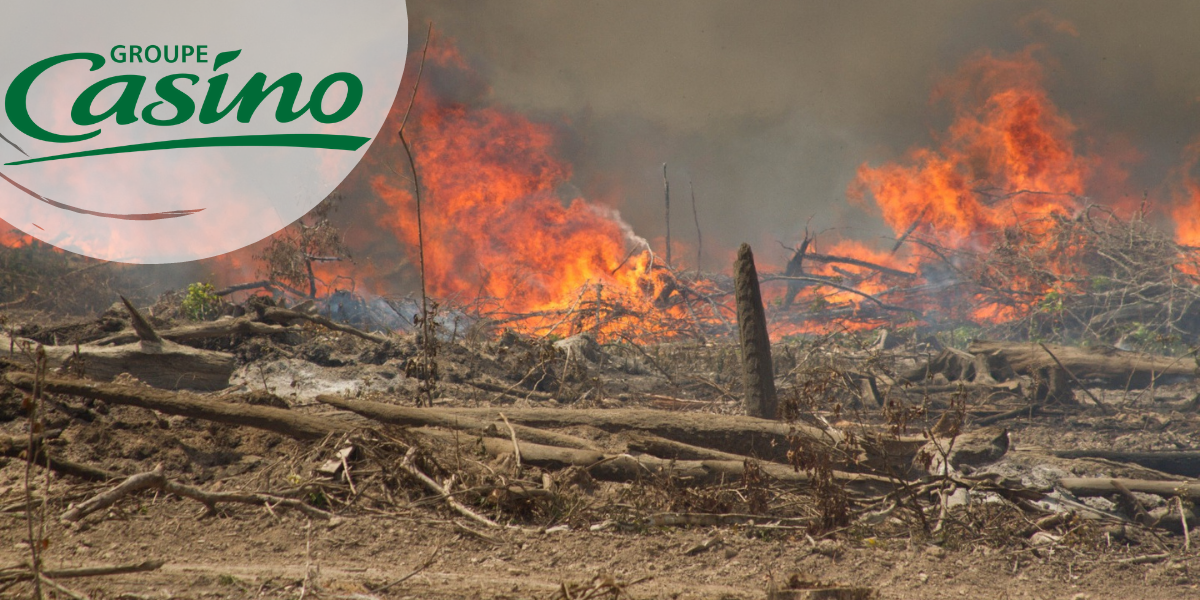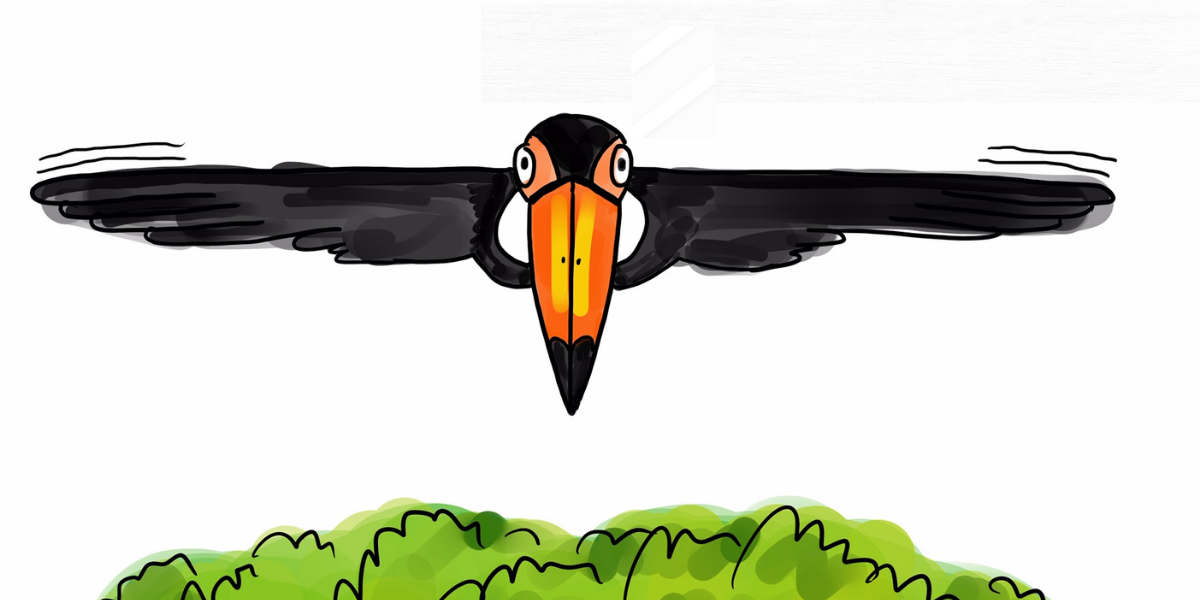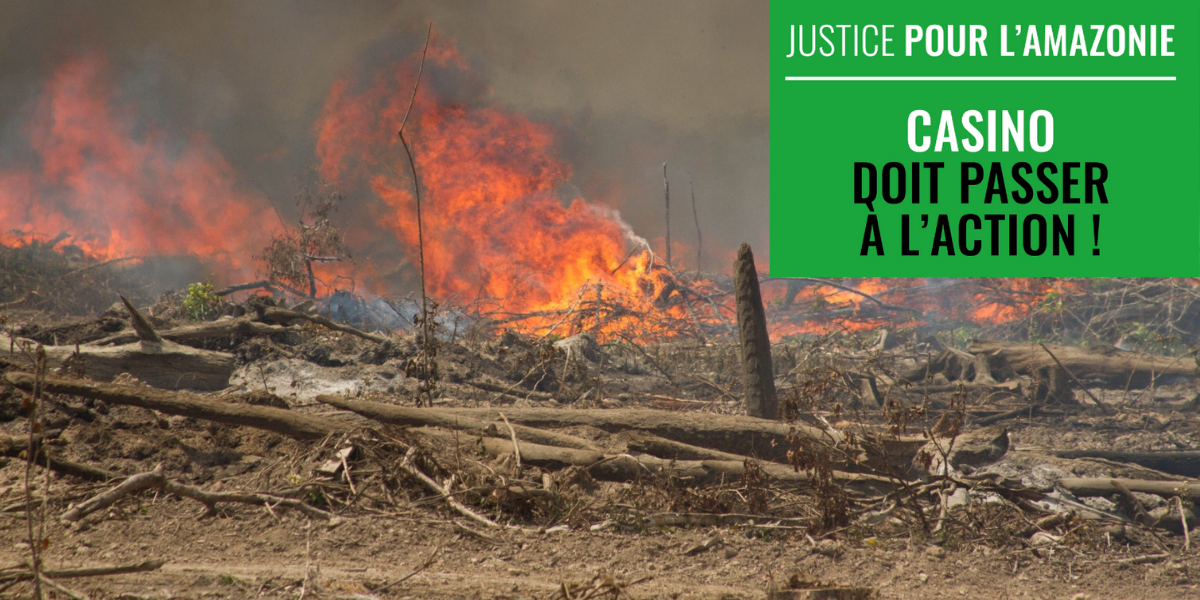Brazil is the country with the world’s greatest biodiversity. It’s also the sorry world champion of deforestation. In 2020, it’s 11,000 km² (or 2,247 sq.mi) of Amazon which have been destroyed. According to some scientists, the region has reached the tipping point. At this rate, The Amazon will become a savannah.
One of the principle causes of this destruction is the raising of cattle.
After the fires in 2019, in partnership with several Brazilian organisations, we investigated the country’s beef supply chain.
Here we found one of the best-known French retailers and the first to launch 100% vegan/organic stores in France (Naturalia). 47% of its profits are made in South America and it is the N°1 retailer in Brazil and Colombia: Casino group.
Our investigation details the practices of 4 farms involved in deforestation in Brazil, in both The Amazon and The Cerrado. These farms using illegal means supply the Casino group in Brazil: 52 products sold on the shelves of 10 stores and the butcher’s sections of 2 stores were identified. These farms alone represent 11,120 acres of forest illegally chopped down to make way for pasture for cattle. Protected, indigenous lands are also converted.
One of the farms is Fazenda Ellus, in The Amazon (Mato Grosso).
- Ellus was a direct supplier to JBS in Araputanga from 2018-2019
- JBS in Araputanga supplies GPA/Casino’s Extra stores in Cuiabá with fresh meat.
Our campaign is paying off !
Follow the news of our campaign
A new study reveals the extent of deforestation linked to Casino in Brazil
After years of procedural deadlock, discussions on the merits [...]
Climate Struggles and Indigenous Fights: What Connections?
On January 26th, 2024, Envol Vert took part in [...]
Casino sue in court
Amazon indigenous communities and international NGOs sue supermarket giant [...]
Double Jeu en Amazonie : Notre bande-dessinée
[...] nous avons fait une bande-dessinée en collaboration avec l'illustrateur DRÖR [...]
#DoubleDealing: Casino put on notice
Indigenous organisations and NGO coalition warn top French supermarket [...]
Notre position vis à vis du groupe Carrefour
À la suite de la campagne “Casino, (Eco)responsable de [...]


